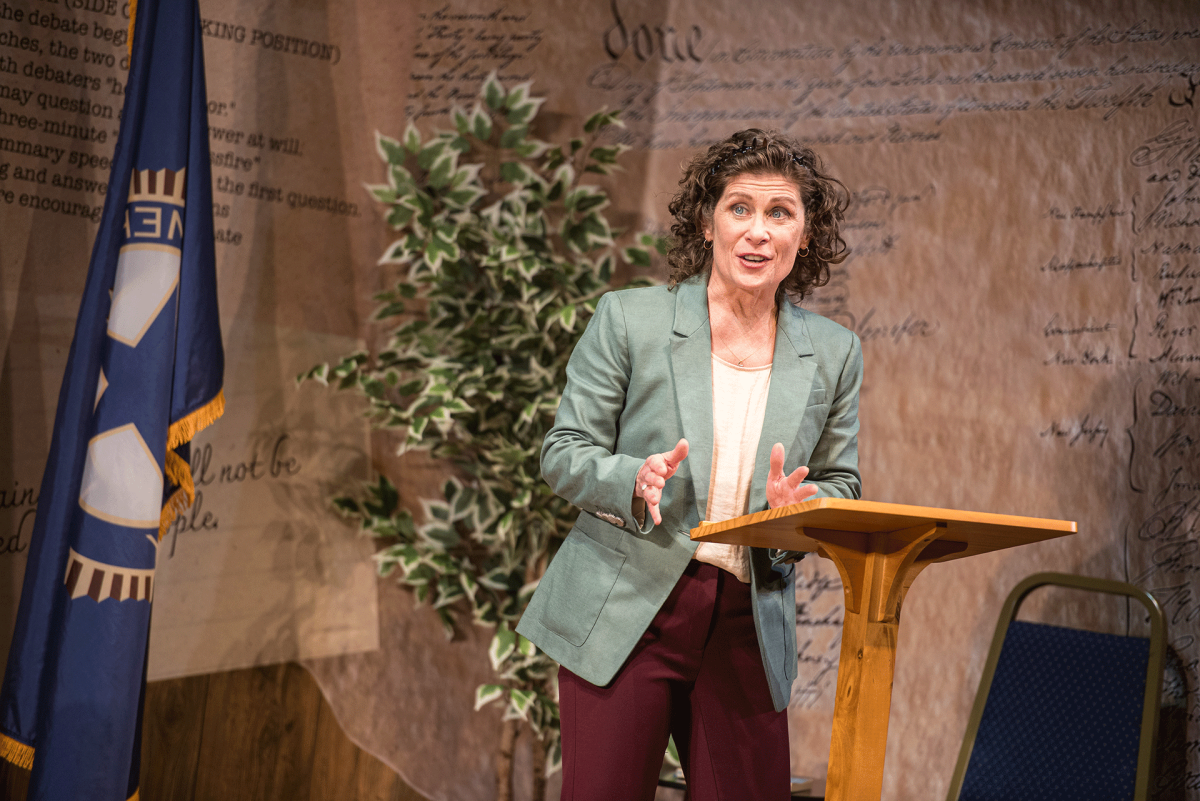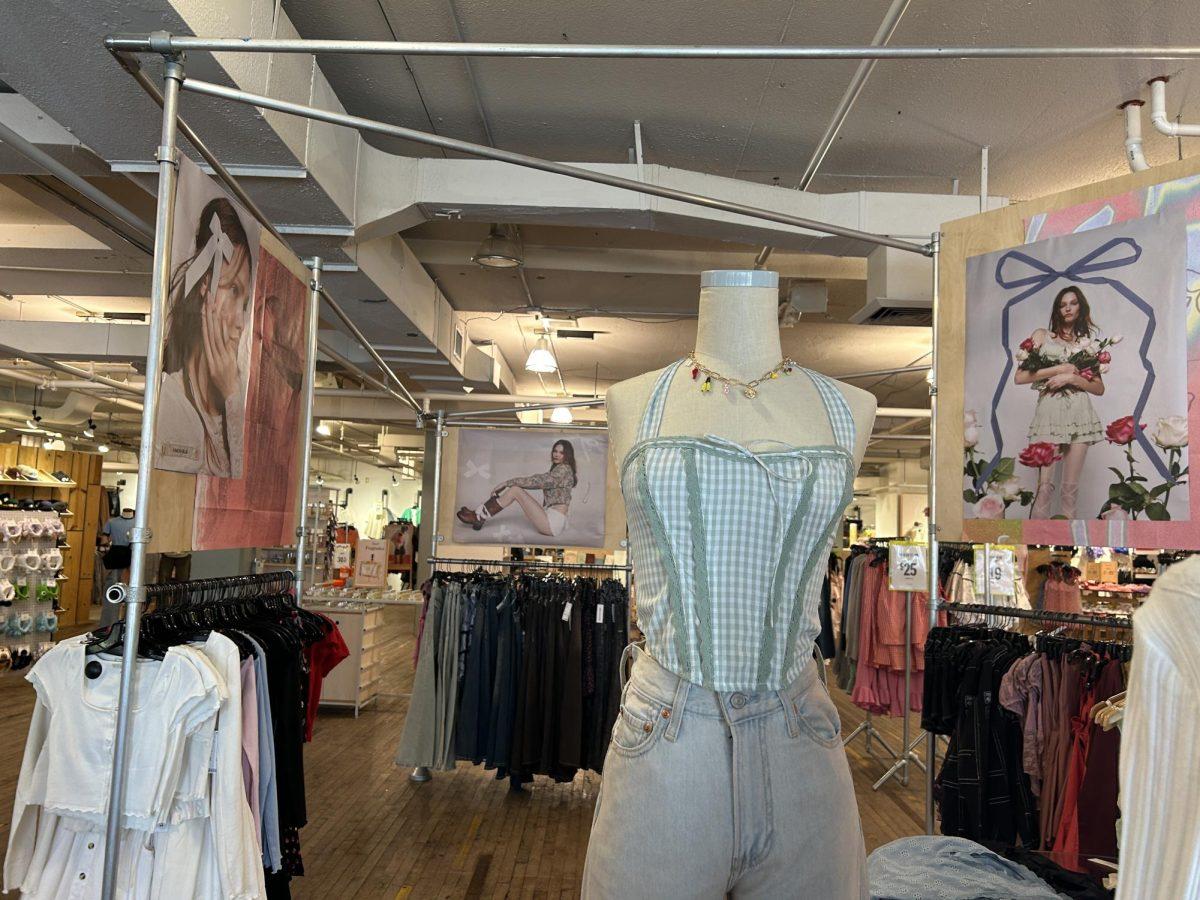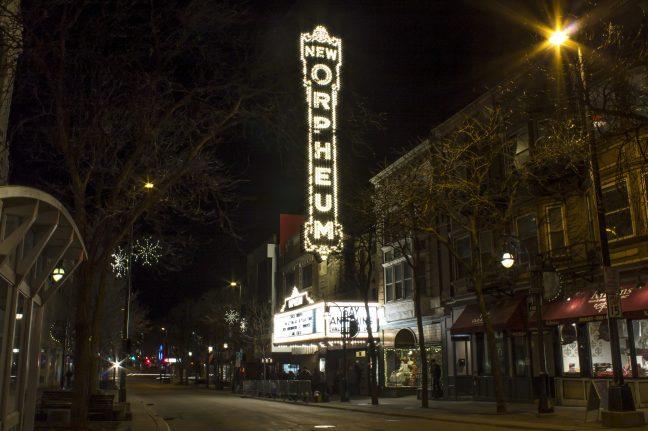Hello, fellow sex enthusiasts. As much as I love to share the gritty details of the wide world of naughtiness, I should perhaps preface this article with the warning not one single sex position will be mentioned. Believe it or not, there’s more to one’s sex life than the nuts and bolts of fucking. Sometimes just determining whether a nut or a bolt is preferable can be a challenge in itself. Sexual orientation, once questioned, thought about and owned, is a powerful tool that allows us to be much more comfortable in the bedroom, for reasons both obvious and otherwise.
As a poli sci major and ragingly idealistic liberal, I recently fulfilled my fantasy of participating in a civil rights march in Washington, D.C. The National Equality March took place on Oct, 11, where LGBTQ supporters marched for equal rights. Forty hours on a coach bus was by no means a light trip, but it was worth every minute.
The things I saw and the people I met were absolutely brilliant. I saw couples of all stripes being open and exuberant about their relationships, some holding signs saying “Oh Yeah, The Sex Is Amazing.” I met Muslim women from Egypt, and while their religion states homosexuality is a sin, they saw no need to limit the rights of those who do not follow Islam, especially when the nation does not have an official religion.
But I digress. What really sparked a debate among those I came with was, of all things, a sweatshirt. In neon fabric paint it read, “Bisexual: Not Confused, Not Greedy.” This got a few of us thinking, where do bisexuals fall in the debate, in this fight for equality? And how do we all fit in the scale of sexuality anyway?
Enter Kate Siberine, my good friend and founder of UW’s LGBT Campus Center’s Bisexuality Discussion Group. She directed me first to the Kinsey scale, a seven-point sexuality spectrum developed in 1948 by famed sexologist Alfred Kinsey. With “0” being completely heterosexual and “6” being completely homosexual, most people tend to fall in the “1 to 5” range. This is not to say all human beings are latent bisexuals, but to examine perhaps the rigid dichotomy we place on ourselves by identifying as either gay or straight. She brought up the term “pansexual,” which is a broader view of bisexuality that bases human attraction without regard to gender.
Gender expression varies. The sensitive male and the alpha female are not indicative of their orientation. Sometimes we can’t explain who we are attracted to or why, and the need to find an explanation is superfluous. Go through as many Freudian theses as you must; at the end of the day, we all just want to experience guilt-free mutual attraction.
And that’s just what James and Kitty have found. As two bisexuals in a heterosexual relationship, they have a lot of stereotypes to fight on a daily basis. I sat down with them to discuss a few.
Nikki: What are some of the most hurtful assumptions people have about bisexuals?
James: That we are greedy, that we can’t make up our minds. I feel like we are ostracized by both the gay and straight communities for being open about our preferences.
Kitty: For me, it would be awesome if my mom didn’t think I was changing my sexuality every time I changed partners.
Nikki: What about the claim that “bisexuality is the last exit on the way to gaytown?”
James: That’s pretty damaging; it assumes that one must “choose” to be either gay or straight.
Kitty: For those who are still figuring out their sexuality, it could be a halfway point. But this is not necessarily the case, as evidenced by James and me.
Nikki: There is that wonderful “the more, the merrier” stereotype that stems from porn, mostly about women marketed to straight men. Thoughts?
James: Perhaps statistically, people who are bi tend to be more willing to participate in such situations, due to the fact that we are so open about what we like. But it’s not a guarantee that bi people will find that appealing; monogamy is common for us too.
Nikki: How do you guys feel about labels? How do you liked to be defined?
James: Being labeled as bi is neither good nor bad in my opinion.
Kitty: I take pride in my bisexuality.
James: I think that sexuality cannot be quantified, and it’s never black or white.
Kitty: Yeah, we don’t feel a need to be categorized according to a certain model, and because of this, the sex is great!
Nikki: That’s what the readers really want to hear.
James: (laughs) Yeah, it’s fantastic. We get to be completely honest as a couple about anything we might be into.
Kitty: Communication in the bedroom is so narrowly defined. It’s like, if you don’t like something one person is doing, say something. But in order for communication to really improve your sex life, you need to be open about all aspects of yourself.
James: Being unhappy in one aspect of your relationship almost always influences sex first. (laughs) It’s especially prevalent with Kitty and me.
Kitty: And you know, people say, “Oh, you’re a bisexual couple.” But we’re not. We’re just a couple who happen to be bisexual.
James: We’re just people. (smiles at Kitty) And we’re happy.
That, everybody, is why I marched on Washington. Because all of us deserve that opportunity to be happy with whomever we’re humping, and to recognize that people cannot be discriminated against based on pass? sexual compartmentalization. Once we move away from drawing battle lines, both mental and legislative, we will finally be sexually liberated. And that will most definitely improve your chances of getting laid.
We’ve moved away from the question format this week, but we will return to it very soon! My hope is that this article can inspire only more introspection and further Hump Day e-mails, because we love them so. Don’t be afraid; it’s putting out without the consequences!
Nikki Signer is a political science and religious studies major and a facilitator for Spill. Kate Siberine works for the LGTB Campus Center and holds a weekly Bisexuality Discussion Group on Thursdays, TITU. James and Kitty are just plain awesome. Send your Hump Day questions to [email protected].














